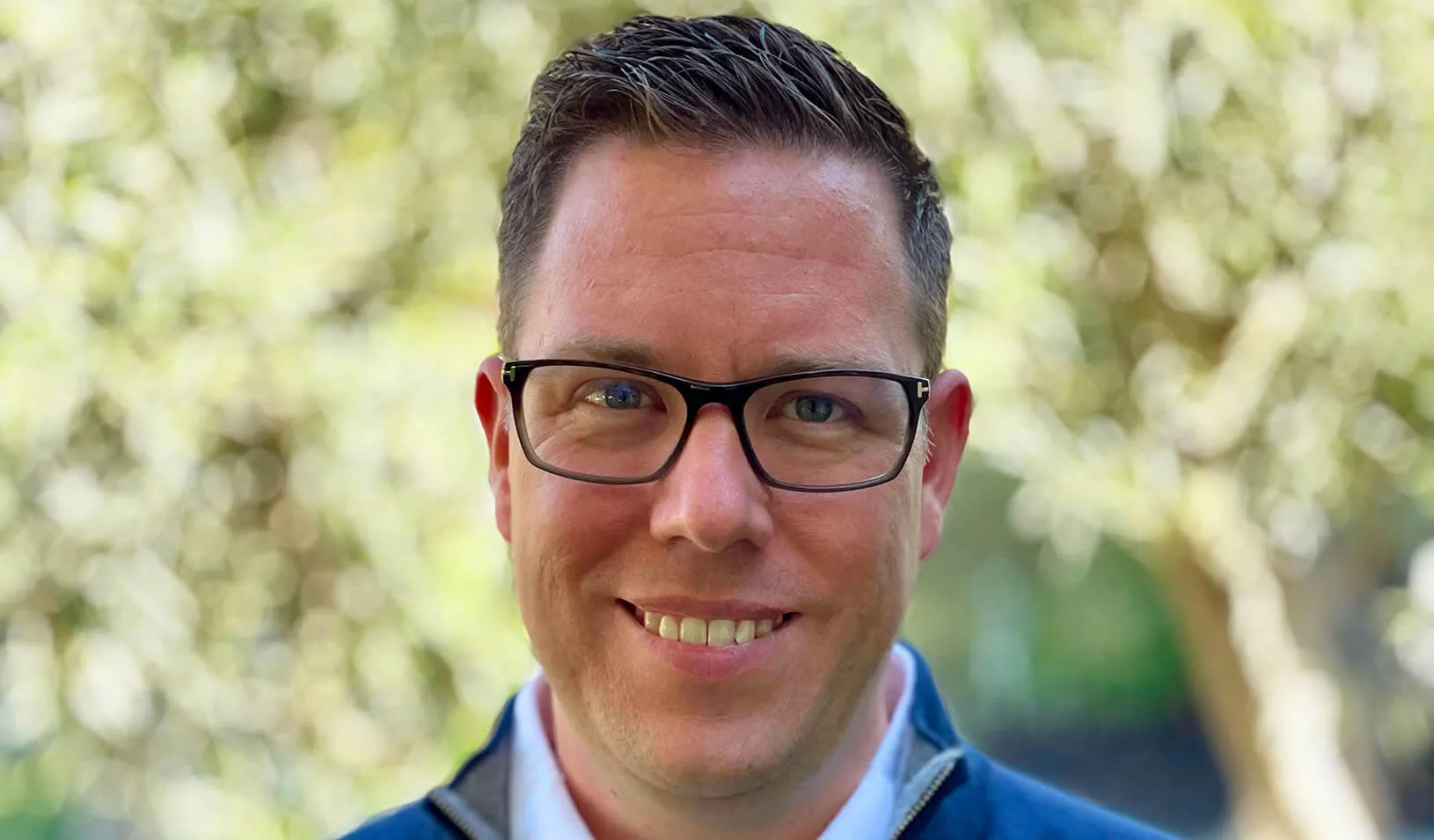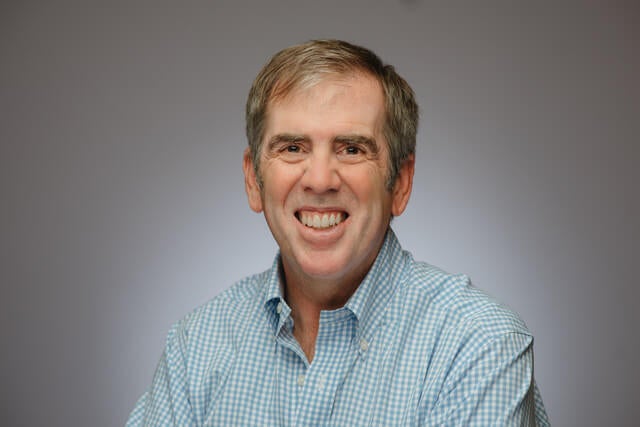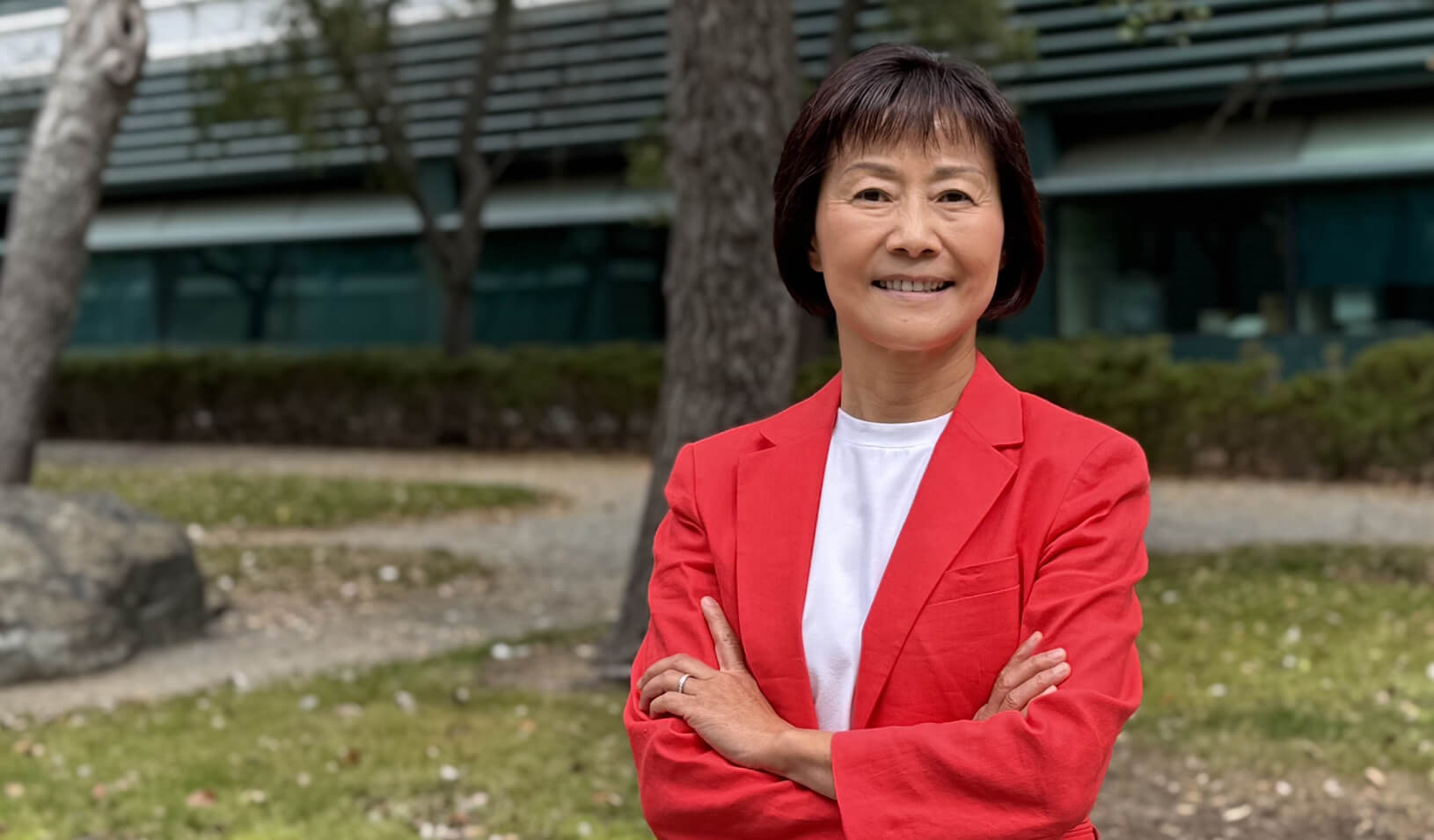Finance Executive Expands His Perspective, Steps Up to the Role of CFO
The Stanford Executive Program broadened Chris Garber’s worldview and community, and helped prepare him for his role as CFO at Guild
April 17, 2023

Chris Garber has built an accomplished career in finance — starting out as a financial analyst and advancing to more senior positions at several tech companies. Acting as a finance partner to different business units across industries taught Chris to “speak the language” of many departments, from sales to product development to manufacturing.
“I think about a company as a living puzzle,” Chris says. “Every function has its different pieces and its role to play. Those pieces fit together to create the structure of the company and the way the business operates.”
Chris enjoyed the challenges of working in high-growth companies, where he was constantly learning new things. However, to make the leap from senior VP to CFO, he felt additional education would be beneficial. “I hadn’t been in a classroom since undergrad,” says Chris. “Every time I thought, well, maybe I’ll go back to school or get an MBA, a new work opportunity would present itself and I’d choose it for the immediate chance to learn and grow.”
In 2017, Chris decided it was time to seek out additional education, to gain the knowledge and bring additional outside perspectives to his role. He compares this point in his journey to looking through a camera lens: “Just like when the aperture opens up to let light in before it snaps shut and takes the picture, I wanted to open the aperture wide on my career before I narrowed in on what I wanted to do next.”
Seeking a broader perspective on leadership, Chris discovered Stanford GSB Executive Education.
Expanding Perspectives and Experiences
Chris completed the six-week, on-campus Stanford Executive Program. He loved that the curriculum balanced theory and practical application, inviting participants to use their own experiences to apply concepts for leading people, organizations, and change. “There was the classroom learning, but then there was a lot of application, whether it was case studies or hearing from other executives and guest speakers,” Chris says. He appreciated that the program addressed “the whole range of you as a leader,” helping him prepare for the multifaceted role of CFO.
Learning from faculty and guest speakers on global economic and geopolitical issues was an exercise in “dot connecting” for Chris.
He remembers how a presentation by a COO of a telecom company showed him “what leadership at scale looks like.” He also recalls a riveting panel of government leaders sharing how they approached international negotiation. “None of the things we do in our companies exists in isolation,” Chris notes. “They are connected to all these other events and global systems.”
The most powerful piece of the program for Chris was learning alongside his classmates, other business leaders from around the globe. For example, a class on valuation would be followed by a dinner conversation with classmates about “the round somebody was doing or the mergers and acquisitions deal they were in the middle of,” he recalls. “It always magnified the real-world stories about how everybody was applying what they learned in the program.”
Chris found that the sense of community with his classmates was strengthened by simply being participants together, regardless of their industry or rank. “Everybody left their title at the door,” Chris remembers.
Becoming a Chief Financial Officer
Chris is still actively in touch with his classmates. In fact, one of those classmates played a major role in Chris’s decision to join Guild, where he is now CFO. The organization helps companies support their employees’ career and economic mobility by investing in education and skills programs that also align with their talent priorities. When Chris learned about the company, he was inspired to join, noting that this “was an opportunity to build a great business that also had a tangible human impact on the world.”
In the years since participating in the Stanford Executive Program, Chris has found the broader perspectives and worldview he gained in the program are pivotal to his role as CFO. “I think a leader’s job is to bring all of that content and context together in the decisions that we ultimately make for our businesses and our teams,” he says. “The Stanford Executive Program experience helped me realize just how big that worldview and universe was. I think for that breadth and cross-functional nature, that is the role of the modern CFO today.”


